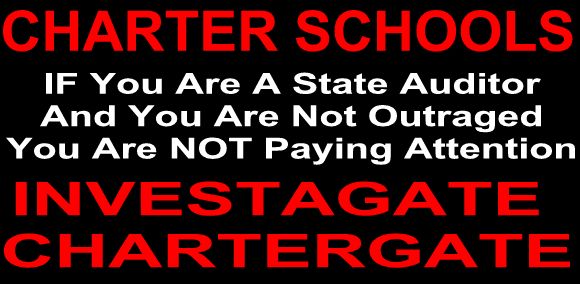Federal Government Continues To Feed Charter School Beast Despite Auditor’s Warning

Politicians always promise they will rid government of “waste, fraud, and abuse,” so let’s hope at least one political leader or policy maker will denounce our federal government’s new gift of nearly a quarter-billion dollars to charter schools.
The cash dump to charters, courtesy of taxpayers, is from the U.S. Department of Education. As Education Week reports, the money is going to eight states and 15 charter school networks from the Charter Schools Program, a federal government operation that doles out millions every year to start new charter schools.
This money is the latest installment of an over $3 billion gravy train the federal government has funded to help launch over 2,500 charter schools across the nation.
Regardless of how you feel about these schools, you should be concerned about how this new government outlay to charters will be used, based on the extensive track record of financial malfeasance in these schools.
Indeed, shortly after the USDE announcement, the Department’s own auditor warned that the money is very much at risk of ending up in the pockets of fraudsters and con artists rather than in the classrooms of diligent students and dedicated teachers.
Again Education Week reports, the audit by the agency’s inspector general’s office examined 33 schools in six states and concluded that because of a general lack of oversight of charters there was a “risk that federal programs are not being implemented correctly and are wasting public money.”
The risk stems from the “cozy relationships,” the EdWeek reporter’s words, between charter schools and companies that operate them, called Charter Management Organizations (CMOs).
Of the 33 charter schools the audit examined, 22 had examples, sometimes multiple examples, of how CMOs take advantage of the Federal Government Continues To Feed Charter School Beast Despite Auditor’s Warning:
Big Education Ape: New Grants Announced: Education Department Continues to Pour Millions Into Charter School Black Hole - http://bigeducationape.blogspot.com/2016/10/new-grants-announced-education.html
Big Education Ape: Education Department slammed for charter school oversight — by its own watchdog office - The Washington Post - http://bigeducationape.blogspot.com/2016/10/education-department-slammed-for.html
Big Education Ape: Audit: Cronyism Between Charters, Management Groups Imperils Federal Aid - Politics K-12 - Education Week - http://bigeducationape.blogspot.com/2016/10/audit-cronyism-between-charters.html
















.jpg?1473909743)




